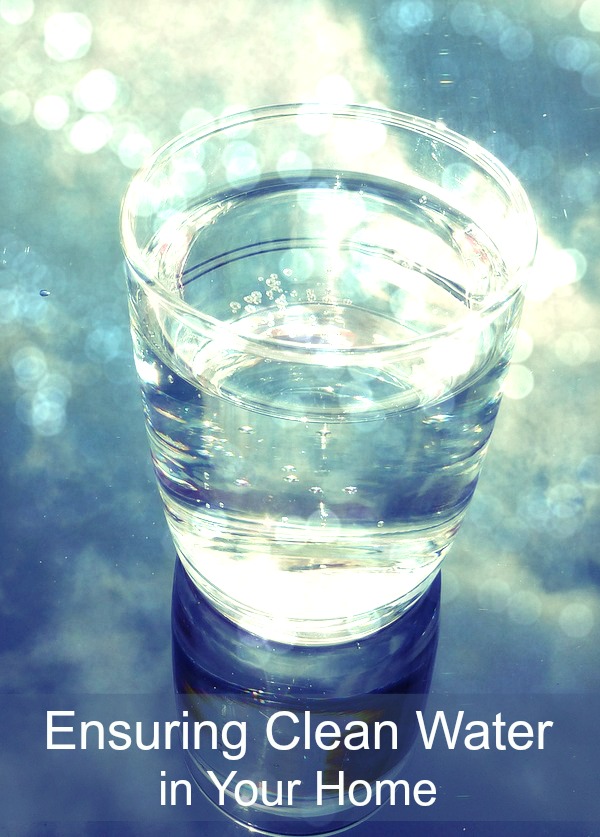Water is essential to life. The average person cannot go more than three to five days without consuming water in some form be it actual water, other liquids, or in hydrating foods like fruit. Your body uses water to regulate body temperature and keep your skin, hair, and organs moist. Water is also the primary component of blood, spinal fluid, intercellular fluid, and the fluid that cushions your joints; it is also a medium for chemical reactions inside your body. In fact, there isn’t a single organ or body process in which water does not play a part. Water is the most important element in our lives, second only to air. This is reason that clean water is a necessity for everyone.
Where we Get Our Water
A majority of the US relies either on municipal water or groundwater wells for its daily water intake. Municipal water is treated and filtered to remove as many contaminants as possible. Often this treatment requires the use of chlorine to kill dangerous organisms. While the chlorine only appears in trace amounts once it reaches your tap, it can often leave a metallic, chlorinated taste to the water. Also, although municipal water systems are vigilant in detecting and filtering dangerous organisms, it’s still possible for some to make it past the filtration process.
Well or cistern water may or may not be treated depending on who owns the well, and who has access. For example, someone who accesses a private well on his own property might not think to treat the water before use. On the other hand, people who share a well might have one central person or agency that treats the well, or they might take turns.
If the water is in a cistern, it means it’s either collected from rainwater, or a water company periodically comes and fills the cistern for a fee. If it’s well water, it means it comes from an aquifer underground that is either fed through water seeping through the soil, or from a nearby river or stream.
The issue with well and cisterns is that, without proper treatment, there could be dangerous organisms growing in the water, or that are introduced from farm and industrial runoff. This is not to say that these water sources are inherently unsafe, only that there may not be a central body charged with ensuring the water is properly treated and filtered before it enters your taps.
Whether you have municipal water or a cistern/well setup, you can take extra steps to ensure that your water is as clean as can be by installing a filtration system.
Types of Water Filtration Systems
There are several types of water filtration options, and the type you use depends on your basic needs.
Pitcher and Water Bottle Systems
These systems are for people who can’t install a water treatment system in their homes, or wish to filter water outside of home – like the break room at work or the water fountains at the park.
Faucet-mount Systems
Faucet-mount systems are for people who care about having the cleanest possible drinking water, but are not a concerned about their bathing water. These systems are also good for people who live in situations where they can’t install a whole-house filter, such as apartment dwellers and renters.
Whole-house Systems
Whole house systems are for people who care about having the cleanest possible water for all their needs. This system is also good for people who have water that may appear cloudy, or contain mineral sediments that can stain clothing or damage your plumbing.
There is also a specialty subset of whole-house systems called problem water systems. These systems address specific issues that you may have with your home water, such as:
· Heavy chlorination;
· High levels of sulfur, arsenic, and minerals like iron and manganese; and
· High acidity.
Finding a Water Filtration System
You can find a water filtration system in a variety of places.
· Water conditioning companies like Culligan and De Anza Water conditioning services specialize in both faucet-mount and whole-home systems and usually provide installation along with the actual units;
· Plumbing and remodeling companies might have water treatment systems, and can also install them. However, they may not be as knowledgeable as a water conditioning company on the type of system you might need;
· Hardware and home-improvement stores also carry water treatment systems for the whole home and single faucets, although you might have to install the units yourself after purchase;
· You can also find faucet-mount systems, filtered water pitchers, and even water bottle inserts at grocery and drug stores. These systems are often easy to install, but may not provide level of protection that you could get from a water conditioning company.




water is the most essential for human life. so we should save water & save life. how to deal with jealousy
We used to live on a farm and had well water and it was the best tasting water I have ever had. We didn’t even think about using a water filter and if we had I can only imagine what the water would have tasted like.